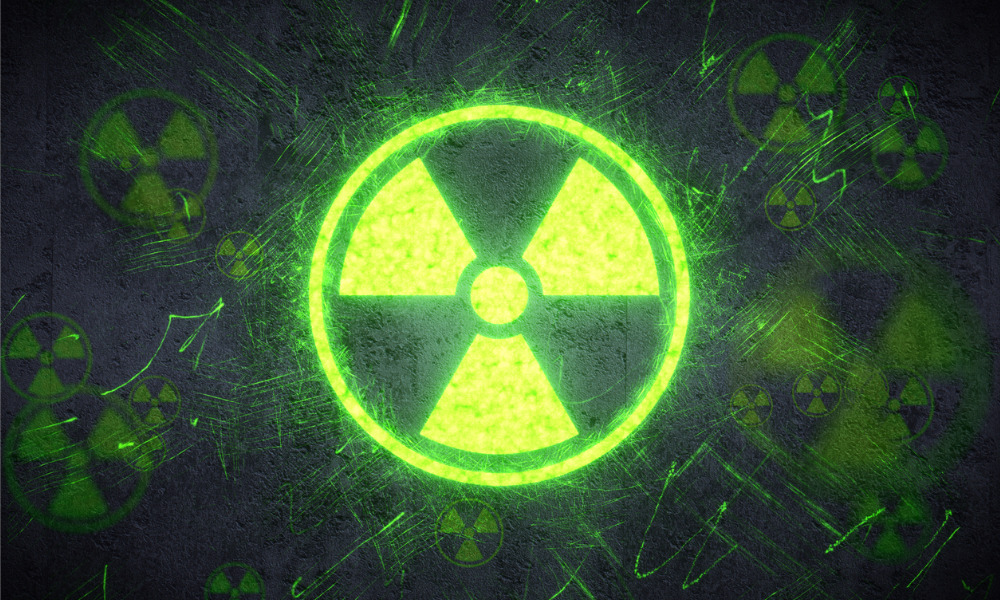Certification issued by nuclear safety commission vital in preventing harmful exposures to workers

Each day, radiation types are used in a wide variety of settings such as health care or in nuclear plants. And the risks of excessive radiation exposure can be potentially highly dangerous for workers in these settings. It can lead to a range of health issues, from hair loss to an array of cancers.
This is why it essential for workplaces who operate facilities which produce radiation to understand the risks, and to effectively control exposure to healthy and safe levels. This is where the Radiation Safety Officer (RSO) steps in.
The Radiation Safety Officer (RSO) is a position usually held by an individual who specializes in radiation safety, this is a “person who implements and administers the radiation safety program at a licensed site on a day-to-day basis,” says Rachel Timmins, Senior Project Officer – Accelerators and Class II Facilities Division, Directorate of Nuclear Substance Regulation, Regulatory Operations Branch, Canadian Nuclear Safety Commission.
So what exactly does an RSO do? Well, they have several responsibilities – “mainly ensuring that all CNSC requirements are followed whenever the activities authorized under the organization’s licence are performed,” says Timmins.
Read more: Workers at Ukraine's Chernobyl nuclear power plant under duress
She says that the RSOs responsibilities may include: ensuring the health and safety of personnel, the public and the environment, oversight of the daily aspects of the Radiation Protection Program, acting as the primary contact with the CNSC for licensing and compliance matters, identifying radiation safety problems, implementing corrective actions, ensuring compliance with the CNSC regulatory requirements, reporting regulatory non-compliances to the CNSC, holding the authority to stop any activity related to the operation of a Class II Facility or servicing of Class II Prescribed Equipment that might result in noncompliance, developing procedures and policies related to radiation safety and training, and acting as the signing authority for CNSC licences.
As with most, if not all, safety designations and certifications, a person can only be appointed to this role if they are certified by the Canadian Nuclear Safety Commission (CNSC).
The individual wishing to become an RSO has to successfully complete an examination that is administered by the CNSC. The expert judgement of the Commission, which acts as a quasi-judicial tribunal, will deem whether a person is capable of performing the duties of the person.
The seriousness of the process denotes just how important it is to have someone knowledgeable and competent to ensure that workers are not unnecessarily being exposed to harmful radiation levels.
And not anyone can become an RSO just like that. You need at least a Bachelor’s degree in engineering or science from a recognized university. In addition, Timmins says that you need a “minimum of two years of relevant work experience where, for example, transferable skills may include those developed working with a licensee who operates an accelerator for treating humans, or for treating animals.”
In addition, the candidate must demonstrate an appropriate level of knowledge covering a number of provisions, regulations, operational activities and safety programs.
In Canada currently, a safety designation of any sort is not typically a requirement. Titles like the CRSP or the CRST are certainly a plus but not necessarily requirement. This is why certain organizations are fighting for better title protection in Canada.
What differentiates the RSO from the titles above is that it is actually a requirement in a number of settings. All licensees who operate or service Class II prescribed equipment are required to appoint a certified Radiation Safety Officer (RSO). Licensees who operate or service equipment or facilities other than Class II may appoint a Radiation Safety Officer but that person is not required to be certified, says Timmins.
Workplaces which produce radiation types are of course hazardous, so it would make sense to bring in such a hefty safety requirement. But there are also a number of work environments in Canada that carry serious risks, and may want to follow the example of the Canadian Nuclear Safety Commission when it comes to optimizing workplace safety.





